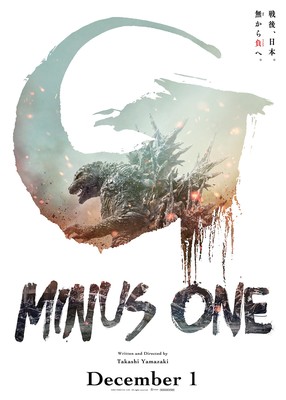Curated From www.animenewsnetwork.com Check Them Out For More Content.

2023「劇場版 SPY×FAMILY」製作委員会 ©遠藤達哉/集英社
The SPY×FAMILY Code: White anime film debuted at #1 in the Japanese box office in its opening weekend. The film sold 866,000 tickets and earned 1.224 billion yen (about US$8.61 million) in its first three days.
The film opened in Japan last Friday. The film is an all-new work with an original story. Crunchyroll will screen the film in North America in 2024, and describes the story:
He’s a spy. She’s an assassin. Together, Loid and Yor keep their double lives to themselves while pretending to be the perfect family. However, their adopted daughter Anya, a telepath, knows both of their exciting secrets unbeknownst to them. While under the guise of taking his family on a weekend winter getaway, Loid’s attempt to make progress on his current mission Operation Strix proves difficult when Anya mistakenly gets involved and triggers events that threaten world peace!
Original manga creator Tatsuya Endō is credited with the original work and original character designs for the film, and he also supervised the film. WIT STUDIO and CloverWorks again animated the film. Takashi Katagiri directed the film, and Ichiro Okouchi was the scriptwriter. Kazuaki Shimada was the character designer, and Kana Ishida was the sub-character designer. Kyoji Asano was the chief animation director. Kazuhiro Furuhashi was the animation supervisor. [K]NoW_NAME wasthe music producer, and Shōji Hata was the sound director. Official HiGE DANdism performed the film’s theme song “Soulsoup.” The band also performed the first opening theme song for the anime’s first season. Gen Hoshino performed the film’s ending song “Hikari no Ato” (Trails of Light). Hoshino previously performed the ending theme song “Kigeki” (Comedy) for the anime’s first television season, and the new song serves as a “sequel” to that song.
New cast members for the film include Tomoya Nakamura as Dmitri, Kento Kaku as Luka, Banjou Ginga as Snijder, and Shunsuke Takeuchi as Type F.

©水木プロ・フジテレビ・東映アニメーション
The Kitarō Tanjō: Gegege no Nazo (Kitarō Birth: The Mystery of Gegege) anime film rose from #6 to #5 in its sixth weekend. The film earned 173,149,340 yen (about US$1.21 million) from Friday to Sunday. The film has sold a total of 1.14 million tickets, and has earned a cumulative total of 1,635,896,850 yen (about US$11.50 million).
The film opened in Japan on November 17 and sold 111,500 tickets and earned 160,106,620 yen (about US$1.07 million) in its first three days.
Gou Koga (Gegege no Kitarō: Nippon Bakuretsu!!, One Piece Episode of Sabo) directed the film at Toei Animation, and Hiroyuki Yoshino (Macross Frontier, World Trigger, 13 episodes in 2018 GeGeGe no Kitarō) wrote the screenplay. Touko Yatabe (2018 GeGeGe no Kitarō‘s third ending sequence unit director, Evangelion: 3.0+1.0: Thrice Upon A Time assistant director) designed the characters. The main cast includes Toshihiko Seki as Kitarō’s father, who would eventually become Medama Oyaji, and Hidenobu Kikuchi as Mizuki, a salaryman who heads to a cursed village under secret orders.
The film is part of four “big projects” commemorating the 100-year anniversary of Shigeru Mizuki‘s birth. Mizuki passed away in 2015 at 93 years old. Another project is a new Akuma Kun anime that premiered on Netflix on November 9.
Kamen Rider the Winter Movie: Gotchard & Geats Strongest Chemy ★ Gotcha Great Operation opened at #6.

© TOHO CO., LTD.
Godzilla Minus One, Takashi Yamazaki‘s new film in TOHO‘s Godzilla franchise, dropped from #5 to #8 in its eighth weekend. The film earned 104,941,010 yen (about US$737,900) from Friday to Sunday. The film has sold a total of 3 million tickets for a cumulative total of 4,618,402,690 yen (about US$32.47 million).
Godzilla Minus One opened in Japan on November 3, 2023 (“Godzilla Day”), which was the anniversary of the first Godzilla film’s November 3, 1954 release. The new film screened at The Tokyo International Film Festival (TIFF) as the closing film of this year’s event on November 1.
The film sold 648,600 tickets for 1,041,193,460 yen (about US$6.93 million) in its first three days in the Japanese box office. The film sold 14.7% more tickets and earned 22.8% more in its first three days than the last live-action Japanese Godzilla film, Hideaki Anno and Shinji Higuchi‘s Shin Godzilla, did in its first three days in 2016.
Ryunosuke Kamiki plays protagonist Kōichi Shikishima, and Minami Hamabe plays heroine Noriko Ōishi. (The two also lead the cast of NHK‘s ongoing weekday morning series Ranman.) Other cast members include Yuki Yamada, Munetaka Aoki, Hidetaka Yoshioka, Sakura Andō, and Kuranosuke Sasaki.
The film opened in U.S. theaters on December 1, and earned US$11,419,975 in its first three days to rank #3 in the U.S. box office in its opening weekend. The film has the highest opening weekend for a foreign film in the United States this year, surpassing the US$10.1 million opening weekend earnings of Demon Slayer: Kimetsu no Yaiba Swordsmith Village Arc in March. The film has become the highest-earning live-action Japanese film in North America.
Yamazaki is the director and writer, and is also credited for visual effects. Yamazaki has primarily directed live-action films, including the Always: Sunset on Third Street, Returner, and Parasyte films, but has also directed CG films such as Stand By Me Doraemon.

© 2023映画「翔んで埼玉」製作委員会
The live-action sequel film Tonde Saitama ~Biwako Yori Ai o Komete~ (Fly Me to Saitama: From Lake Biwa With Love) dropped from #7 to #10 in its fifth weekend. The film earned 78,675,480 yen (about US$553,300) from Friday to Sunday, and has earned a cumulative total of 1,853,769,560 yen (about US$13.03 million)
The film opened on November 24 and ranked at #1. The film sold 292,300 tickets and earned 415,361,850 yen (about US$2.80 million) from Friday to Sunday in its opening weekend, and sold 444,500 tickets to earn 629,616,310 yen (about US$4.25 million) in its first four days, counting its Thursday opening day. (Thursday, November 23 was the Labor Thanksgiving Day holiday in Japan.)
The film was delayed from its original planned opening last year. The staff had put its production on hold following lead actor Gackt‘s announcement of an indefinite hiatus in September 2021. The hiatus was due to an early onset neurological disease that was progressing into a “life-threatening condition,” resulting in dysphonia (disorder of the voice). Gackt announced in May 2022 that he was steadily recovering physically, and the film resumed production in October 2022.
The sequel film centers on the second phase of the “Japan Saitamization Plan” of the Saitama Liberation Front led by Rei Asami (Gackt) and Momomi Dannoura (Nikaidō). Seeking greater freedom and peace, the group heads to the Kansai region in the west, where an incident between the east and west will spark a fierce battle.
The first Tonde Saitama (Fly Me to Saitama) film opened in Japan in February 2019. The movie sold 191,000 tickets for 259,038,800 yen (about US$2.33 million) on in its opening weekend to top the Japanese box office.
Shinei Animation‘s anime film of Tetsuko Kuroyanagi‘s Totto-Chan: The Little Girl at the Window (Madoigwa no Totto-chan) autobiographical memoir dropped out of the top 10 in its third weekend, but it still earned 61,450,670 yen (about US$432,100) from Friday to Sunday, and has earned a cumulative total of 482,274,660 yen (about US$3.39 million).
Studio Ponoc‘s anime film of A.F. Harrold and Emily Gravett’s The Imaginary novel dropped off the top 10 in its second weekend, but it still earned 26,498,310 yen (about US$186,300) from Friday to Sunday, and has earned a cumulative total of 131,069,180 yen (about US$921,600).
Sources: Kōgyō Tsūshin (link 2), Press release, comScore via KOFIC
